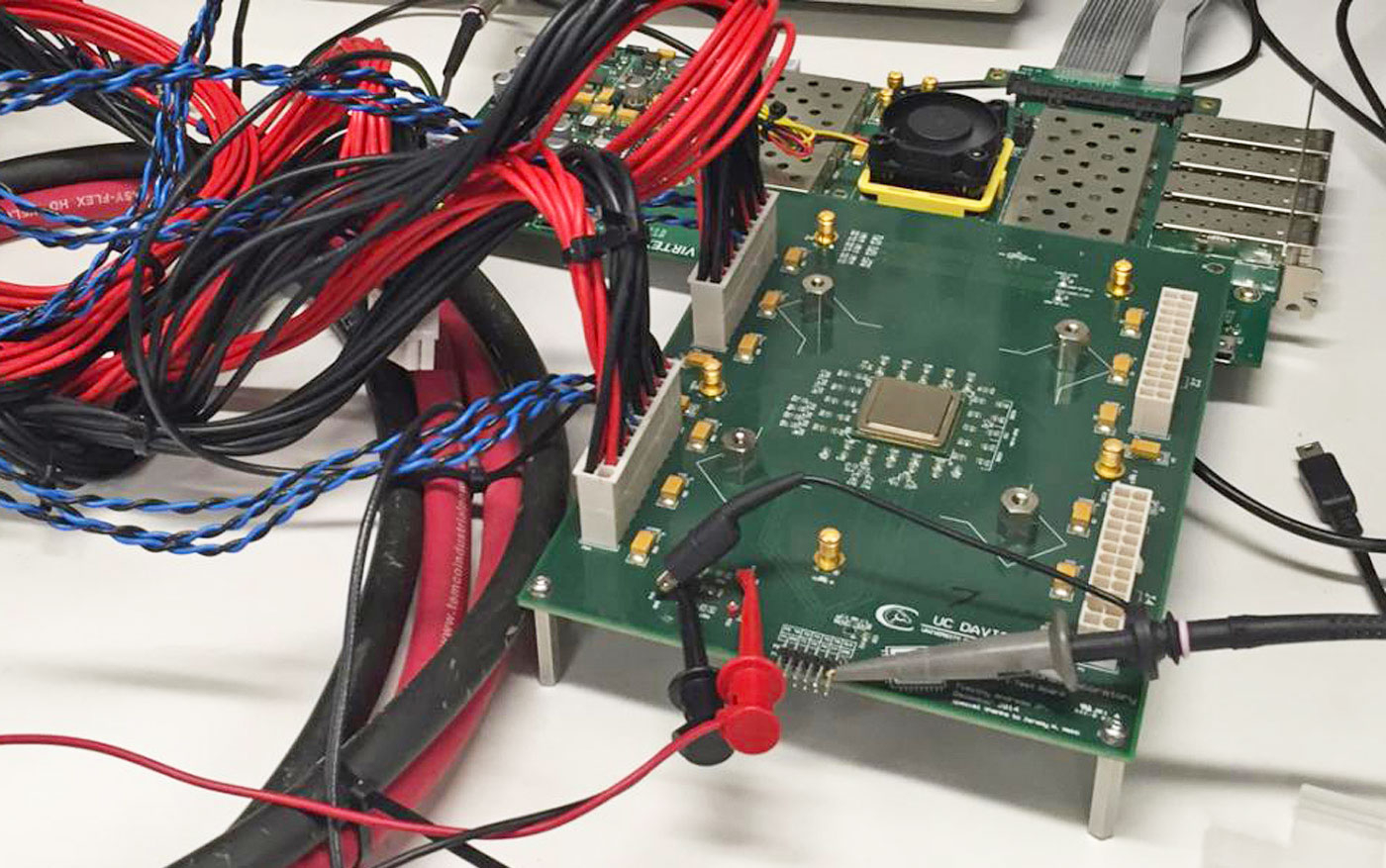A team of engineering students at the University of California, Davis has developed a new processor with 1,000 CPU cores. The chip is so power-efficient that it can run on a single AA battery, and is said to be the most energy-efficient many-core processor created to date.
Presented at the 2016 Symposium on VLSI Technology and Circuits in Honolulu earlier this month, the KiloCore, as it’s called, can execute 115 billion instructions per second while dissipating just 0.7 watts. The cores inside the processor can be clocked to a maximum of 1.78 GHz, and individually shut down when not in use. The cores also transfer data among each other instead of relying on a shared cache of memory, which is typical of today’s commercial processors.

The KiloCore is 100 times more power-efficient than modern laptops. Image source: University of California, Davis.
The KiloCore is 100 times more powerful than today’s laptops, despite being built on old 32-nm CMOS processor tech from IBM. But the question is: what would you use a chip with 1,000 cores for? Well, nothing out of the ordinary — you could use it for encryption, decryption, video processing, and plenty of scientific tasks that may come to mind.
Unfortunately, we aren’t about to see mass production of this processor. This is mainly due to the fact that the university had IBM manufacture the chip on the ancient 32-nm process. And, most of today’s similar applications are designed to run more efficiently on a lower number of highly-clocked threads rather than splitting the work across slower cores.
However, this does raise the possibility of many-core processors finding their ways into a variety of mobile devices. Though they’re not universally helpful, they could save lots of time when your laptop or smartphone would otherwise slow down.
Still, it's difficult to disagree that a creation such as this is impressive.
Source: PCWorld
Advertisement
Learn more about Electronic Products Magazine





